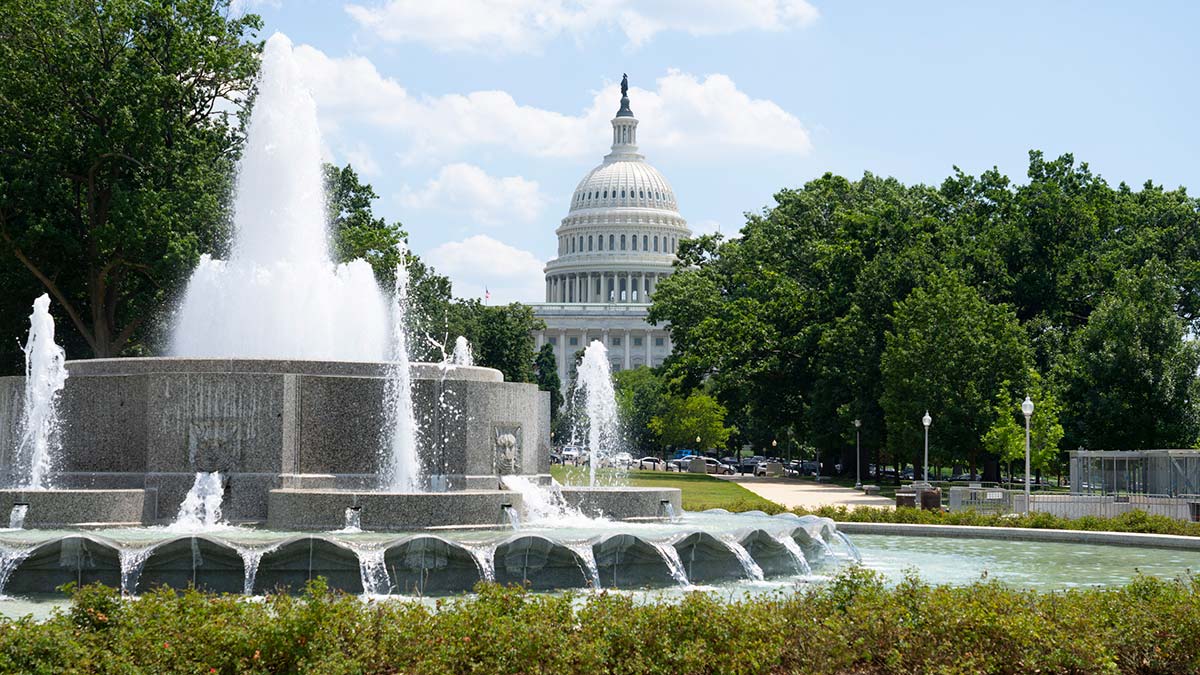Lobbying Guidance
Rochester Institute of Technology encourages all members of the University community to be active and engaged participants in civic and public life.
This guidance is not intended to discourage members of the RIT community from communicating with their elected representatives or taking part in political activities as private individuals, or on behalf of groups or organizations with which they are affiliated. When engaging in such activities in a personal capacity, individuals must refrain from using RIT resources (e.g., RIT email, RIT-issued cell phone, RIT office phone, or RIT letterhead) and must clearly indicate that they are acting as private individuals, not as representatives or employees of RIT.
The Division of Government and Community Relations is the University’s designated point of contact for all federal, state, and local lobbying. Faculty, staff, and students should reach out to this Division to discuss any planned activities that could be interpreted as lobbying before proceeding. Except for specifically authorized employees, members of the RIT community are not permitted to lobby on behalf of the University.
Gifts
As an employee of RIT, you are prohibited from giving “gifts” to government officials. A gift is defined as anything of more than nominal value* given to a public official, a public employee, and/or anyone on the state or local payroll in any form including, but not limited to money, service, loan, travel, lodging, meals, refreshments*, entertainment, and discounts.
*An official could accept refreshments if they were available to everyone at an event, for example, cookies or punch at a ribbon cutting ceremony. They could also accept an RIT-branded giveaway circulated at event, or trinket given at an event as a speaker thank you.
New York State Lobbying
RIT is currently registered to lobby in New York State and the Division of Government and Community Relations is in charge of registering and managing faculty and staff who are registered lobbyists for RIT. If you are not a registered lobbyist for RIT, you are prohibited from lobbying on behalf of the university. The New York State Lobbying regulations apply to attempts on behalf of the university to influence the below listed matters both directly (by contacts with public officials and their staff) and indirectly (through contacts with the press, social media or contacts with groups or individuals encouraging them to take a lobbying action). In New York, lobbying is defined as any attempt to influence:
- The introduction of state legislation or resolutions
- The passage or defeat of state legislation or resolutions
- The adoption, issuance, rescission, modification, or terms of an executive order issued by the governor, or the chief executive officer of a municipality
- The adoption or rejection of any state or local rules and regulations
- The outcome of a ratemaking proceeding of the state or any municipality or subdivision thereof
- Any determination by a public official/public employee or a person or entity working with a government official related to a governmental procurement
- The approval, disapproval, implementation of tribal- state compacts or other tribal agreements
Federal Lobbying
There are two registered lobbyists at the Federal level for RIT, Vanessa J. Herman, Vice President, Government and Community Relations and Maya Temperley, Associate Vice President, Government and Community Relations. It is critical that all advocacy taking place at the federal level be conducted in coordination with the Division of Government and Community Relations (GCR) to ensure compliance with federal regulations and alignment with RIT’s government relations strategy. Lobbying efforts, including social media posts, indirect or direct oral or written exchange, must be approved by the Division of Government and Community Relations before any action is taken.
All Federal lobbying activity as defined in this section must be reported to the Division of Government and Community Relations prior to any contact occurring.
Explanation: Federal lobbying disclosure requirements are established by the Lobbying Disclosure Act (LDA) of 1995 (2 U.S.C. § 1601), as amended by the Lobbying Disclosure Technical Amendments Act of 1998 and the Honest Leadership and Open Government Act of 2007
“Lobbying activities” are defined under the LDA as lobbying contacts and efforts in support of such contacts, including preparation and planning activities, research and other background work if it is intended, at the time it is performed, for use in lobbying contacts. A “lobbying contact” is an oral or written communication with members of Congress or their personal and committee staffs, or with the President, Vice President and certain Executive branch appointees, regarding (1) the formulation of Federal legislation, rules, regulations or policies; (2) the administration of Federal program or policy, including the negotiation or award of a Federal contract, grant, loan, permit, program or license; or (3) the nomination of anyone subject to Senate confirmation.
Lobbying activity does not include any communications such as articles or speeches made through mass media, testimony given before or submitted to Congressional committees, subcommittee, or task force of the Congress, or submitted for inclusion in the public record of a hearing conducted by such committee, subcommittee, or task force, information in response to a request by a federal official or a notice in the Federal Register, and communications required by subpoena or otherwise compelled by law.
Faculty members who are seeking or received federal funding may contact federal grants officers to discuss prospective or ongoing projects. If the grants or contracts are awarded under a competitive review process, such contacts are not considered to be lobbying.
Advocacy materials and participation in Hill days. RIT employees may be a member of a national association or society that advocates on behalf of a profession or a particular cause. Typically, national organizations prepare advocacy materials that are consistent in message and address issues of priority for their membership. These materials are often used during a federal advocacy day, sometimes called a Hill Day, where a delegation of the national organization meets with elected officials and/or congressional staff. If you are representing RIT and planning to engage in this type of advocacy, GCR would like to see any materials and talking points in advance to ensure they align with the university’s mission, goals and federal agenda. In order to comply with federal lobbying regulations, GCR requests that the national organization arrange all advocacy day meetings with public officials rather than having RIT employees schedule meetings.



